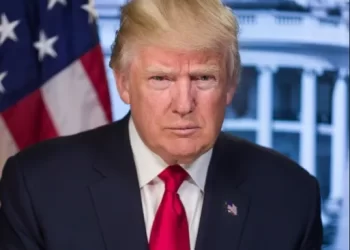China launched a diplomatic offensive against the United States on Friday, sanctioning House Speaker Nancy Pelosi just days after she became the highest-ranking US politician to visit self-ruled Taiwan since 1997 and canceling eight bilateral mechanisms as Beijing continued its sustained display of rage against both the US and the island, including an ongoing display of military might around it.
Soon after announcing Pelosi’s sanction on Friday, the Chinese foreign ministry announced “eight countermeasures” in response to Pelosi’s Taiwan visit, including canceling talks between military officials and suspending critical climate change talks between Beijing and Washington.
Other measures included canceling meetings between the Chinese and US defense ministries, suspending China-US maritime military security consultations, and suspending China-US cooperation on the repatriation of illegal immigrants and criminal judicial assistance cooperation, according to a statement from the foreign ministry.
The ministry sanctioned Pelosi because she had shown “disregard for China’s grave concerns” by visiting Taiwan, which China claims as its own territory.
“This (Pelosi’s visit) constitutes gross interference in China’s internal affairs,” the Ministry of Foreign Affairs said in a statement.
“It gravely undermines China’s sovereignty and territorial integrity, seriously tramples on the one-China principle, and severely threatens peace and stability across the Taiwan Strait,” the statement added.
“In response to Pelosi’s egregious provocation, China decides to adopt sanctions on Pelosi and her immediate family members in accordance with relevant laws of the People’s Republic of China,” the statement said without sharing details of the sanctions.
Pelosi, whose visit to Taiwan earlier this week was denounced by Beijing as a provocation, a complete farce, and malicious, is one of the most senior US politicians sanctioned by China in recent years.
Those sanctioned by China are usually barred from entering the country and doing business with Chinese companies.
China sanctioned outgoing US Secretary of State Mike Pompeo and 27 other top officials from then-President Donald Trump’s administration in early 2021, accusing them of “hatred” toward China and carrying out “crazy” moves to harm its interests in Xinjiang.
Pelosi’s visit to Taiwan and the Chinese government’s reaction have sparked a wave of nationalism in the country, with many citizens closely monitoring developments.
President Xi Jinping and the top leadership of the Communist Party of China (CPC) have responded as expected with harsh rhetoric and large-scale drills, despite the fact that intense military exercises began only after Pelosi left Taiwan.
Separately, on Friday, Vice Foreign Minister Deng Li summoned a number of European envoys and the Japanese envoy in response to the G7 and EU High Representative for Foreign Affairs and Security Policy’s “negative statement” on Taiwan.
“China firmly opposes to the G7 statement and staged a solemn representation, Deng told the envoys who were summoned, according to a statement issued by the ministry on Friday.
China’s official Xinhua news agency has reported that the military “flew more than 100 warplanes including fighters and bombers” during the exercises, as well as “over 10 destroyers and frigates”.
According to official news agency, Xinhua, the eastern theatre command’s air force and naval aviation corps flew more than 100 warplanes “…including fighters and bombers to conduct combat training exercises such as joint reconnaissance, aerial refueling, airspace control, and strikes on ground targets”.







 Finance
Finance







